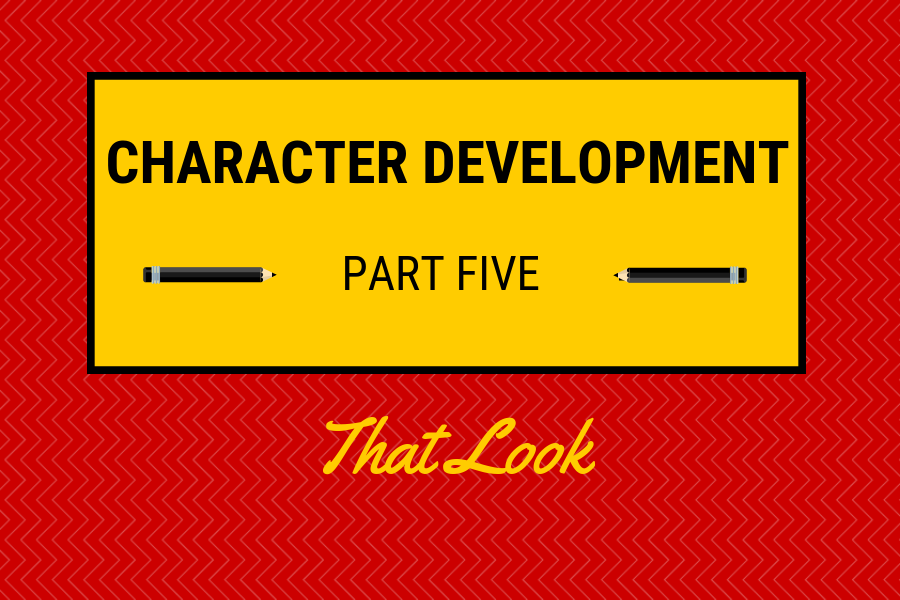C. S. Lewis (maybe you’ve heard of him) famously commended the reading of old books:
Every age has its own outlook. It is specially good at seeing certain truths and specially liable to make certain mistakes. We all, therefore, need the books that will correct the characteristic mistakes of our own period. And that means the old books…. None of us can fully escape this blindness, but we shall certainly increase it, and weaken our guard against it, if we read only modern books. Where they are true they will give us truths which we half knew already. Where they are false they will aggravate the error with which we are already dangerously ill. The only palliative is to keep the clean sea breeze of the centuries blowing through our minds, and this can be done only by reading old books (from “On the Reading of Old Books” in God in the Dock).
I love it when C. S. Lewis takes the same view as I do. In particular, I consider the reading of old books to be a helpful—even indispensable—habit for writers. I recommend Faulkner, Steinbeck, and Hemingway, Thoreau and Emerson, Bacon and Shakespeare and Dickens, among many, many others. We can learn so much from such authors and their books.
However, I must add a qualification. Read old books, but do not imitate or absorb every writing technique of those authors.
So much has changed over the years in what people read, what they expect when they read, and what they will tolerate when they read. I offer you just four quick examples:
- Brevity
Old books—not all, but many—were often written to be read aloud, in the days before radio and television. Others were serialized and published episodically in weekly or monthly magazines. Those formats permitted longer scenes and sometimes rambling descriptions. Such is no longer the case. Today’s readers expect books to move along at a faster pace than, say, James Fenimore Cooper’s Last of the Mohicans—faster, even, than a novel from twenty-five or fifty years ago.
- POV
Modern readers of fiction want to get lost in a book’s fictional setting. Careful attention to “point of view” (that is, whose “head” I’m in when I’m reading a fiction scene) maintains the illusion. A Dickens or Dostoevsky novel may shift point-of-view from one character to another several times in a single scene, but that won’t fly these days. “Head hopping” wasn’t a crime in their day, but it is for modern writers.
- Dialogue tags
I opened Jane Austen’s classic novel Pride and Prejudice to a random page. On that page, I saw six dialogue tags: “she repeated,” “he then replied,” “she continued,” “said Darcy,” “repeated Darcy,” “cried Elizabeth.” These days, an editor might strike half—or all—of those tags, for various reasons. First, because they describe the obvious. Also because there’s nothing wrong with “said” (in fact, today’s readers barely read the word; their eyes slide over it except when it helps to identify the speaker). And capable writers use fewer tags nowadays, preferring to tag dialogue with action (He stepped to the window. “What do you mean?”) or even letting the tone or manner of speaking identify the character instead of “he said” or “she interlocuted.”
- Historical accuracy
Earlier this year, The Association for Library Service to Children (ALSC) announced a decision to change the Laura Ingalls Wilder Award (named for the author of the popular Little House on the Prairie books) to the Children’s Literature Legacy Award. The ALSC said the reason for the decision was the depiction of racist attitudes in the books. Others expressed dismay at the move, pointing out that the wrongness of the attitudes were also depicted. Nonetheless, it is an illustration of the challenges today’s writers face. The need for integrity and accuracy (historical and otherwise) has never been greater, nor the demand for sensitivity and equanimity. Some words can be implied but may not be used. Some attitudes or actions that may be completely accurate will be thoroughly censured. We can’t know every possible reaction to our words, but we must—particularly as Christian writers—consider our words carefully and seek to enlighten and uplift in a dark and downtrodden world.
These are just a few differences to be noted and observed by those of us who read old books. No doubt this blog’s readers can add a few from your own experience. I hope you will.





Not just old books, Bob, but also old songs. Wesley, Crosby and others packed the whole gospel message into four stanzas. Folks who didn’t have a Bible at their fingertips could sing their daily quiet time. I love contemporary praise choruses, but some of them are light fare compared to the feast served in my favorite old hymns.
Yes, Shirlee. Absolutely. I have long used my hymnal as a devotional aid. Many are even better (or at least helpfully different) read aloud than sung.
I even enjoy the smell of old books.
Mmmm. Yes. https://www.dailymail.co.uk/sciencetech/article-2647333/Why-old-books-smell-good-Infographic-reveals-complex-chemistry-comforting-scent-yellowed-pages.html
Wonderful post, Bob. Thanks for wise, insightful and inspiring words.
Thank you for the comment, Michael!
I know that’s it has been awhile
since anyone really tried
to imitate the Bard’s own style,
but understandable; he’d be fried
in this world of the mod fast book
that apes the style of manga.
But when you take a longer look
you’ll see (really, I’m not on ganja!)
that even that benighted genre
follows form older than our lov’d
classics, far older even than Faulkner.
So be not by today’s winds shoved
into a land where POV and breathless pace
mean all; let our past become our grace.
I will ask for a sonnet
when I want it.
Your couplet’s fine-edged brevity
infuses it with levity.
I would have stopped at a quatrain
and spared you, Bob, our leader,
from my whackadoodle Bard-dipp’d brain
that is a rhyme-scheme breeder.
But them my muse – please, now, don’t scoff,
said ‘Roll with it, and let’s be off!’
And thus you have my hot-dog sonnet,
that Coney foot-long…want mustard on it?
Great post, and great comments. 🙂
When I was a kid we had 3 channels on TV… I read. I had a book in my hands the whole long walk to and from school. If I was in bed sick, I had a book with me. I devoured the classics, sometimes repeatedly.
If only I didn’t have Youtube and Netflix now!
I just read a fascinating and scary book: Reader Come Home by Maryanne Wolf. About the effect reading online, on devices, in bites (and bytes) is having on our brains, physiologically even. Makes me want even more to read old books…in old formats.
Bob, superb blog posting, as always. I love Bleak House by Charles Dickens, even though it can get a bit confusing with 74 main characters (I created a flow chart when I read the book for my undergrad degree). The book was, like you mentioned, a series and the author got more money, the longer he dragged things out. Still, the book was anything but bleak. It was actually a very happy house. Thanks again!
Yes, Bleak House is a favorite of mine, too. But 74 main characters? Really? Wow.
….I thought reading Steinbeck and Hemingway was a good idea until I actually did and was shocked by the extremely foul language and horrible perverse actions described in great detail, and realized I was sullying my soul with filth. I think the admonition to read these writers needs a warning label: R-rated content (and sometimes worse) ahead. Just keep in mind that when you read these “great” writers of the past, you likely read scrubbed versions that had been cleaned up for schools. (Side note, I think that Hemingway writes the worst dialogue ever. I love Steinbeck’s style–but I can’t read either because their books are too foul and disgusting)
That being said, Dickens and Dostoevsky are much safer and every bit as amazing as they’re said to be.
A precious, mouldering pleasure ‘t is
To meet an antique book,
In just the dress his century wore;
A privilege, I think,
His venerable hand to take,
And warming in our own,
A passage back, or two, to make
To times when he was young.
His quaint opinions to inspect,
His knowledge to unfold
On what concerns our mutual mind,
The literature of old;
. . .
His presence is enchantment,
You beg him not to go;
Old volumes shake their vellum heads
And tantalize, just so.
“In a Library” by Emily Dickinson (1896)
I bow to the Belle
whose words flow with such ease
and I bid my heart tell
her go on, without surcease!
Bob, Yes! While I understand today’s generation wants fast-moving action and dialogue, (compare it to faring on cheese curls and soda) the old books are to the mind what meat and gravy are to the stomach. Did I really say that??
I made sure we had available to our children old literature books, which contained excerpts of the great old stories of the past. And, as a former English teacher, I found a person can teach a whole lot of solid virtues through the classics.
I recently re-read The Adventures of Tom Sawyer and The Adventures of Huckleberry Finn. Although I know there is controversy on some of the material, the stories are funny and informative about a slice of American history. I laughed out loud.
My favorite book may not be considered a classic since it was written in 1942. Still, I think “West With the Night” is a remarkable story and written beautifully by an incredible woman.
Personally, I don’t care for Hemingway. It isn’t just the language. His writing style doesn’t appeal to me.
After 40 years, I re-read Hemingway’s “Farewell to Arms.” Enjoyed it much more as a teen. Just saying – life gives one differing perspective over time.
Love, love, love it. The old should inform the new rather than the new inform (reform) the old. A-hem, at least part of that is right. Somehow we’re white-washing stuff that is better left alone. But who am I to say so? Times are different and it affects our writing. However, there should always be room to speak truthfully, wisely, and circumspectly.
Thanks for talking about old books. Balance is helpful. Lovely topic.
One thing to look out for is having a character respond to the action *before* it happens. For example, She gasped and then the intruder burst into the room. I see this type of sentence structure often, and I cringe because the author may not realize that it actually makes their dear character seem jumpy.
I am glad I have read many of the classics, and need to read more.
This is a great article. Thanks for the reminder.